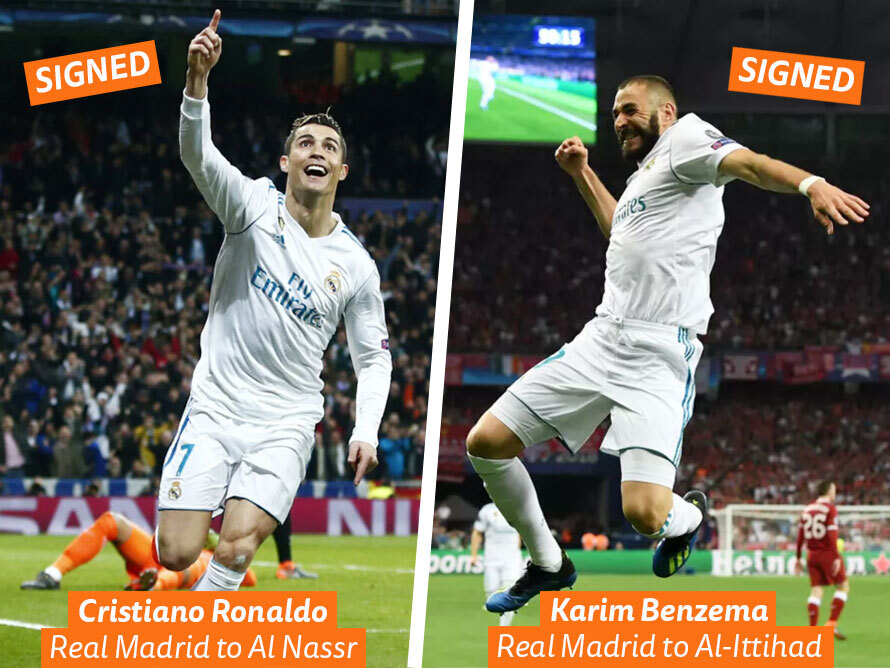Is sport really all about money? Some of the world’s greatest footballers are moving to Saudi Arabia on lucrative late career contracts. Some fans think we face a battle for the sport’s soul.
Top striker latest lured by Saudi salary
 Who's next? Rumours that Lionel Messi would join Ronaldo and Benzema in Saudi Arabia did not come true.
Who's next? Rumours that Lionel Messi would join Ronaldo and Benzema in Saudi Arabia did not come true. Glossary
Saudi Arabian - The second-largest country in the Arab world, with a population of nearly 35 million.
De facto - Something that happens in practice, in contrast to that which happens de jure, or according to the law.
Cristiano Ronaldo - A Portuguese football player, known as one of the best in the world.
Earmarked - Set aside for a particular purpose.
Sacrilege - Treating something holy or important disrespectfully.
Premier league - England's highest level of men's football.
Prestige - Respect or admiration given to something.
Alienated - Feeling isolated or no longer supported.
United Arab Emirates - A country in the Middle East, and the location of Dubai.
Net worth - The amount of assets or money that a person has after their debts have been taken away.
Fifa - The Federation Internationale de Football Association is the world's highest governing body of association football.
Corruption - When someone abuses their power for personal gain. It often involves bribery.
Oligarch - After the collapse of the Soviet Union, most of the country’s economy fell into the hands of corrupt businessmen who became known as oligarchs.
Olympic - Relating to the Olympic Games, which take place every four years.
